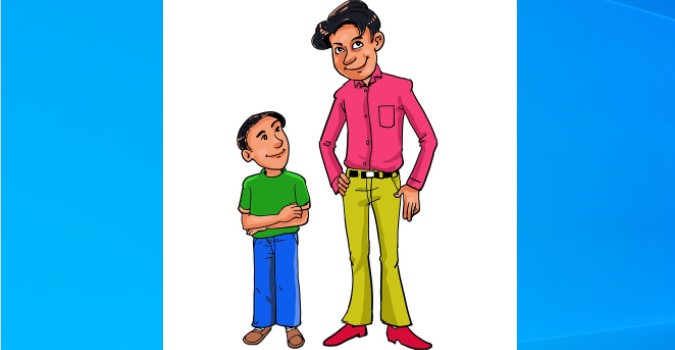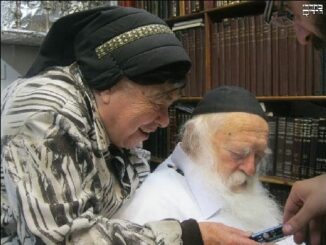
Your life isn’t yours if you constantly care what others think.
Reb Yossi in Gemurah Yerushalmi Chagigah 10:1 warns us:
אמר רבי יוסי: המתכבד בקלון חברו אין לו חלק לעולם הבא ירושלמי, חגיגה ב’ א
Rabbi Yosi the son of Chaninna says: “One who is honored by the disgrace of his fellow has no share in the world to come.”
The nature of people is to make themselves feel good about themselves by seeking out those who are/or have less to them, and such action brought about the destruction of the first Bait Hamikdash.
וַיֹּ֣אמֶר יְהֹוָ֗ה יַ֚עַן כִּ֤י גָֽבְהוּ֙ בְּנ֣וֹת צִיּ֔וֹן וַתֵּלַ֙כְנָה֙ (נטוות) [נְטוּי֣וֹת] גָּר֔וֹן וּֽמְשַׂקְּר֖וֹת עֵינָ֑יִם הָל֤וֹךְ וְטָפֹף֙ תֵּלַ֔כְנָה וּבְרַגְלֵיהֶ֖ם תְּעַכַּֽסְנָה׃
The LORD said: “Because the daughters of Zion Are so vain And walk with heads thrown back, With roving eyes, And with mincing gait, Making a tinkling with their feet”
Instead of working on themselves, the Gemurah Yima B:2 explains, the women exploited the less fortunate for their own gain. Each of those Bnos Tzion looked for a friend who is less than her, less in beauty, shorter, heavier, poorer, etc. in order to pick herself up by looking better than her friend by comparing, leading her to feel good about herself.
The Gemurah says that the Bnos Tzion walked around the market with her “less than friend” she “sprayed herself with expensive perfume” which her poor friend could not afford, she “throw her head around, wink with her eyes and made noise with her shoes” so that people look at the pair, and when compared to her “friend”, she will look great.
We see this concept with Noach, it says in the beginning of parshas Noach אלה תולדת נח נח איש צדיק תמים היה בדרתיו Rashi says compared to Avraham, Noach would not be considered a Tzadik, however, compared to the people in his generation, Noach was a Tzadik.
This was the sin of the Bnos Tzion as they were not much and they looked for people who are less than them in order to pick themselves up to look great on the expense of someone who is less than them.
Some people believe that the sin of the Bnos Tzion was that they were not acting in a tznios modest way by using makeup, perfume, and wearing shoes that made noise. If that was the case, the passuk would say: יען כי בנות ציון לא היתה צנועות.
Is there something wrong to befriend someone who is less than you? It all depends on what your intentions are.
If the reason for taking someone less than oneself is to feel better about your own status, looks, level of learning, ect. that is bad intentions, which Hashem does not allow and despises.
In Kriyas Shema we say אחרי לבבכם ואחרי עיניכם one should not go after his heart and after his eyes.
Why do we say the heart first and then the eyes? It seems that the process is the opposite, first we see something and then if we like and want it we set our hearts to go after it.
That is because looking for itself is not a sin, only if you follow your heart, and you go after the desired thing is what makes it forbidden.
In the עשרת הדיברות ten commandments, Hashem warns us:
וְלֹ֥א תַחְמֹ֖ד אֵ֣שֶׁת רֵעֶ֑ךָ וְלֹ֨א תִתְאַוֶּ֜ה בֵּ֣ית רֵעֶ֗ךָ שָׂדֵ֜הוּ וְעַבְדּ֤וֹ וַאֲמָתוֹ֙ שׁוֹר֣וֹ וַחֲמֹר֔וֹ וְכֹ֖ל אֲשֶׁ֥ר לְרֵעֶֽךָ
You shall not covet your neighbor’s wife. You shall not crave your neighbor’s house, or his field, or his male or female slave, or his ox, or his donkey, or anything that is your neighbor’s.
It does not say “Do not LOOK at your friends’ or neighbors’ wife, his house, his fields, slaves animals or anything that is your neighbors.” It also does not say that your friends or neighbor “should hide his wife, not build a nice house, or nor have nice stuff so that others should not be jealous.”
Hashem warns each person that after you see the nice things which our friends and neighbors have, you need to work on yourself not to be jealous.
Here we see again in the Torah that looking is not a sin, it all depends on your intent and your heart’s desire.
If you see a luxury car or nice house, looking and admiring is not the issue, if you want to get take it away from the person who owns it, you get jealous, or you do crooked business to get the desired object, that is sin.
According to the Torah, looking is not an issue, it is the intent that matters.
We see this with Dovid Hamelechis says —– he saw Bat Sheva without clothes in the bath on the roof of her building. He asked his people who that beautiful woman was and he decided he wanted to marry her. He ordered Bat Sheva’s husband who was in the military to be placed on the front lines at war.
Dovid Hamelech as king had every right to place the husband in that position. That was not the sin, however, Hashem was angry with Dovid over his INTENT, he wanted Bas Sheva’s husband killed so he can marry her.
We see here that the looking at Bat Sheva was not the issue, but rather going after his heart and taking the actions to get what he wanted was the sin.
Bat Sheva was never scolded or punished for her actions of bathing on her open rooftop without clothes where everyone including the king was able to see her.
Dovid Hamelech was taunted by the Jewish people over this a lot and was punished by Hashem. He repented over this action his entire life.
In the end, despite the way they met, the two merited to have their son Shloima Hamlech and Moshiach will also come from them.
In addition, we see this concept in the Kinus: we say on Tisha Bav “בצאתי ממצרים”, “בצאתי מירושלים”
Which is about the Jewish people leaving Mitzrayim Egypt and of the Jewish people leaving Tzion when going to galus exile.
What was the difference with the two? In Mitzrayim the women used makeup and perfume, they dressed themselves up to look beautiful. Those women used the mirrors to enhance their looks, so they can go out in their fields to their own husbands who were working slave labor in the fields. Their intent was to entice their own husband in order to have more children and better marriages. Hashem told Moisha to use these mirrors in the Ohel moed in the Mishkan. Despite the fact that in the field, other men were able to see them as well.
On the other hand, the Bnos Tzion used their makeup, perfume and mirrors to dress up to go out to entice other people not their husbands to look at them and give them attention.
In both cases, the women used makeup and perfume to beautify themselves before going outside, yet, the women from Mitzrayim were rewarded by Hashem they were freed from slavery while the Bnos Tzion were sent to galus to slavery.
Why? because getting dressed up nicely with perfume and makeup in of itself is not the sin, it is the INTENT behind it that will either raise the person up and get rewarded or it will bring them down and will be punished.
We see the same concept when make blessings on the tree, we thank Hashem for creating good fruits and nice looking people.
When we make the blessing on the tree we cannot make it at home, we have to go to the trees, see at least 2 types of fruit trees to appreciate Hashem’s creation and only then can we make the blessing. So too with people, Hashem created nice-looking people for us to see and to appreciate His world and His creations, of course it depends on the intent.
Every person is responsible for themselves and their behavior and his own שמורת עינים guarding his eyes, so it does not lead him to follow his heart for bad deeds, if a man knows that he is weak, and he has a hard time overcoming his Yetzer Horah (evil inclination) then he needs to take every precaution to avoid temptation and work on himself to correct this weakness just like with any fault a person has and not force women to not be in his sight.
We are here in this world to perfect ourselves, to change our own weakness, not to change others or the way Hashem created the world.


